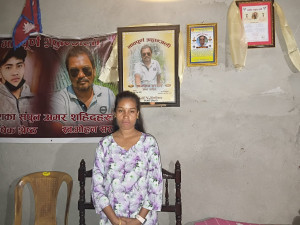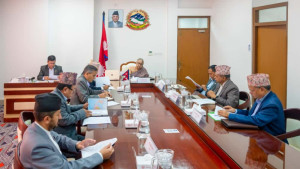Miscellaneous
Thapa: An astute politician
Surya Bahadur Thapa, who served as the head of government five times, was the country’s biggest political survivor.
Binod Ghimire
His 60-year-old political career ended on Wednesday night when he died in course of treatment at the Delhi-based Medanta Hospital. Thapa, who had undergone a successful gastrectomy surgery at the hospital on Friday, was shifted to ventilator after complaints of respiratory problems at around 4pm on Wednesday. He breathed his last at 10:45pm, according to his grandson Siddharatha Thapa. A longtime heart patient, Thapa had also developed a serious lungs problem recently.
Born in March 1928, Thapa will be remembered for his political longevity, tactfulness and ability to adapt to the changed political climate. Once a staunch royalist, Thapa easily welcomed constitutional monarchy after the 1990 Janandolan. He also embraced the political dispensation post 2006—the country’s transformation into a republic. His Rastriya Prajatantra Party voted
for the abolition of monarchy in the first meeting of the first Constituent Assembly in 2008.
He remained the pivotal player of Nepali politics ever since king Mahendra made him the chairperson of the “Advisory Council”, a body assigned to advise the then royal palace, in 1958.
The peak of his political career was perhaps during the 1980 referendum when he helped the Panchayat regime to weather its strongest challenge. Thapa used the state coffers and forest resources to mobilise voters in favour of Panchayat.
Despite his closeness with the palace, his relations with the royals was not always smooth. He faced a jail term for more than a year in 1972 for campaigning against the palace demanding a more liberal order.
In 1983, he was impeached in Rastriya Panchayat, as parliament was then called. Not afraid to speak his mind, Thapa had blamed his power struggle with the palace for his ouster from government.
Many call Thapa a strategic person rather than a leader of principles. Bishwo Bandhu Thapa, who had long a working relation with Thapa, calls him a self-made man who knew how to adjust in every kind of situation. “He remained in the limelight for decades despite changes in the political set-up. He was a dynamic personality,” said Biswo Bandhu.
“Despite criticisms, he remained a key political figure for decades. He has played the role of a negotiator and mediator during political transitions,” said Bishwo Bandu.
“He was trying to bring together the ruling and opposition forces even during the later days of his life.” In an attempt to bring the opponents together, he hosted a dinner meeting for top leaders a few days before he left for India for a check-up.
One of the few Nepali politicians who always had good relations with India, Thapa remained “faithful” to New Delhi. In 2003, Prime Minister Thapa allowed the Indian Embassy to fund projects directly at the local level, deploy armed commandos on the embassy premises and open a Consulate Office in Birgunj. Political analysts say these moves opened the door for India’s direct and long-term involvement in Nepal affairs.
In his twilight years, he was seen moulding the political career of his son Sunil Bahadur Thapa. Despite strong opposition within his party, he made Sunil a Cabinet minister in the Sushil Koirala government.




 18.12°C Kathmandu
18.12°C Kathmandu










